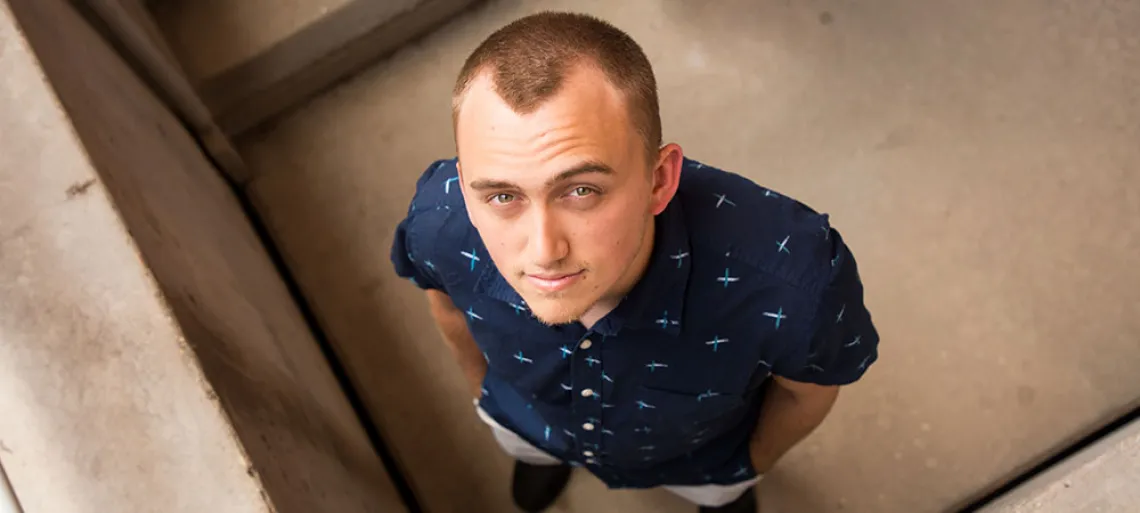Creating Revolutionary VR Technology: Devon Oberdan ’20 MS MIS

What started as an interest in computers and gaming has led Devon Oberdan, ’20 MS MIS to create cutting-edge VR technology at Tech Core.
Tech Core, originally known as Tech.Global, moved to the University of Arizona’s Eller College of Management from UA Global in spring 2019. With a team of eight composed primarily of computer science, management information systems, and information science and technology majors, the team at Tech Core works with web development, mobile development, and VR.
Oberdan, who is the lead VR developer at Tech Core, has been involved in several VR-related projects since joining the team in 2018. The first of these projects was Dance Inspector.
Created in partnership with the Arizona College of Humanities, Dance Inspector allows viewers to watch a 3D model perform traditional African dances recorded using motion-capture technology.
“The idea of the project was that students can learn in the conventional way about dance and then they can jump into this application with an avatar doing the dance,” says Oberdan. “They can look at it from any angle, pause it, rewind it or speed it up.”
This interface gives students a more hands-on look at each step of the dance sequence than a regular video or live demonstration could.
Oberdan was initially drawn to this field by his love for computers and video games. “VR uses Unity, which is a game engine that I was already familiar with,” he says. He began his tech journey by learning JavaScript on online learning websites and through community college courses while in high school, later going on to earn a bachelor’s in computer science from the University of Arizona in 2019.
Another project occupying Oberdan’s time is Nano 2020, a project commissioned by the College of Agriculture and Life Sciences which allows users from anywhere on the globe to enter a VR classroom where they can see, hear and interact with one another. Users in the VR room can even take objects created from data sets and expand them to see them on the microscopic level. For example, users can look at neuron pathways and blow them up to see each neuron connection, or even fly into the chambers of a 3D heart to see each individual heartstring.
Being hands-on during these projects was what ultimately led Oberdan to enroll in Eller’s top-ranked MIS program.
“The last year or so, there’s been a lot of things that have led me to business,” he says. “MIS establishes software development skills, but within the context of a business. It’s the bridge between two worlds: tech and business.”
The idea of creating something engaging is what drives Oberdan, who plans to work on games no matter what. He’s already working on prototyping several short multiplayer games, some of which he hopes to eventually release on various gaming consoles.
It’s his time at Tech Core that has given him not only the skills to do this, but the confidence. “With my job at Tech Core and the move to Eller, my desire to make games and actually be successful has increased.”

